
Every garden will have wildlife that lives amongst the plants and in the nooks and crannies of various structures. When people leave their lawns uncut, it is not just the flying pollinators that will be attracted to the new habitat when various flowers appear, but many of the garden's resident creatures will move into the long grass, too.
It is these creatures that are then destroyed when the mowing resumes once May has passed. You only have to look at the life-cycle of grasshoppers to realise why No Mow May can be such a destructive scheme for wildlife.
If new habitats are to be created in gardens, then they need to be long term and not just for a month or two. In fact, there are many really good things that people could do in their garden to help our declining biodiversity rather than unwittingly risk harming it.
Now that I have retired from my job as head of entomology at the John Innes Centre in Norwich, I spend a lot of time talking to gardening clubs where I can explain the importance of balanced ecosystems. It would be great if you highlighted the pitfalls of creating temporary habitats (eg No Mow May) and what people could be doing instead. Ian Bedford, entomologist and show speaker, via email
PLANTLIFE REPLIES:
The campaign isn't and never has been about creating temporary habitats, but rather encouraging a change in mindset and behaviours as part of a new approach to lawns and green spaces.
Plantlife promotes a mixed mowing regime, with multiple different grass lengths, which has the greatest benefit to wildlife. Short lawns are best for bird's-foot trefoil, for instance, and mini meadow areas mown two to three times a year outside of peak summer months are often home to taller flowers such as musk mallow or oxeye daisies.
Bu hikaye BBC Wildlife dergisinin July 2023 sayısından alınmıştır.
Start your 7-day Magzter GOLD free trial to access thousands of curated premium stories, and 8,500+ magazines and newspapers.
Already a subscriber ? Giriş Yap
Bu hikaye BBC Wildlife dergisinin July 2023 sayısından alınmıştır.
Start your 7-day Magzter GOLD free trial to access thousands of curated premium stories, and 8,500+ magazines and newspapers.
Already a subscriber? Giriş Yap
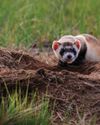
Does cloning create identical copies?
EMBRYOS ARE MADE OF STEM CELLS that divide to give rise to different types of cells, everything from skin to brain cells. Scientists once thought that reproductive cloning creating a genetically identical copy of an individual organism - would be impossible without using stem cells and that the path leading to mature 'differentiated' cells was irreversible. But clawed frogs proved them wrong...
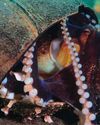
Tool-using animals
Our pick of 10 species that exhibit this special skill

Mission Blue
Sylvia Earle has dedicated her life to marine conservation; she tells BBC Wildlife why protecting the ocean is essential to all life on earth
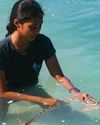
RESHARK
The world's first shark rewilding initiative has seen zebra sharks released in the waters of Indonesia's Raja Ampat archipelago
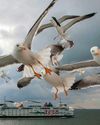
ON DECK
Ferries aren't just for transport, they're also perfect vessels for conservation
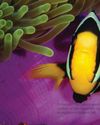
IT'S A COLOURFUL LIFE
Delve into the unique and complex biology of the clownfish, arguably the world's most famous fish
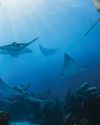
BAHAMAS BENEATH
A dive into the waters of this famous island nation with the creatures that call it home

"To save the reef, we need everybody involved"
Indigenous peoples may hold the key to protecting the Great Barrier Reef
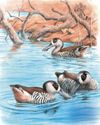
SPINNING AROUND
Going around in circles proves fruitful for this filter-feeder
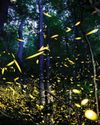
BLINDED BY THE LIGHT
On balmy evenings, amorous beetles put on a spellbinding show in North American forests